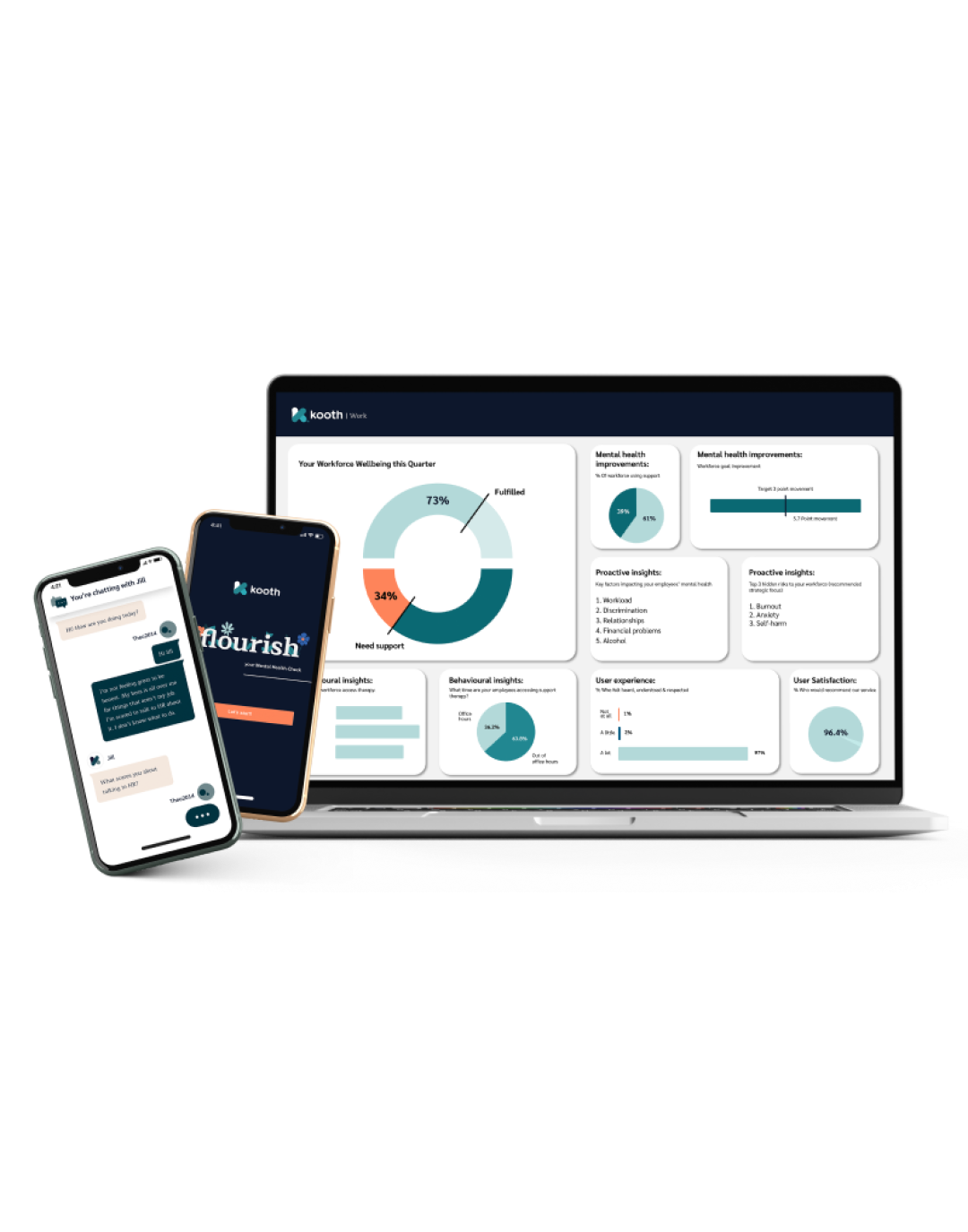Many of us will have heard about and felt the impacts of burnout in the workplace in the past few years. Relentless changes, unprecedented events, and mounting workloads, means that many more people are struggling with burnout and mental health challenges - and the effects are starting to show.
Four out of five UK workers are experiencing burnout, according to Ceridian’s annual 2022 Pulse of Talent report. Burnout has also been labelled as a leading cause of the Great Resignation, and is estimated to account for 80 million lost working hours a year to employers.
Key worker wellbeing is at greater risk
Burnout is a syndrome classed as an “occupational phenomenon” by the World Health Organisation (WHO). It results from chronic workplace stress that has slowly built and not been managed. There are other factors that often play a part in burnout too, including someone’s home life, financial situation, or trauma.
You can read more about the causes, signs, and symptoms of burnout in our Kooth Work guide on Battling Burnout.
Frontline and key workers are more susceptible to burnout, likely due to the high workload and pressure experienced, especially during the pandemic. But amongst key workers there are further disparities, with data from a recent Kooth Work Flourish workforce mental wellbeing audit showing that burnout is linked to discrimination in the workplace.
Discriminated against groups are worst hit
On top of the challenges of being a key worker, employees from discriminated-against groups - including people from ethnic minority backgrounds, women, people with a disability, and members of the LGBTQIA+ community - are often having to carry further stressors.
Dr Jeri Tikare, a Clinical Psychologist at Kooth, explains why this could be:
“In a group where you are the minority, it can feel like there are a lot of extra threats. Because of the society we live in, where there are challenges with systemic exclusion, people who are from marginalised backgrounds have to work much harder to get a job. There is often an element of needing to prove that you are good enough to be there or good enough to be allowed to have the job you hold.
“Then there are threats in the workplace, such as an increased likelihood of discrimination and bullying, being an outsider, or not having the same opportunities. People from underrepresented groups often end up hiding parts of who they are in order to fit in and may find it difficult to say no or share ideas.
“From a psychological perspective, this makes someone more prone to burning out, as their ‘cup’ is already filling up with additional threats and stressors in the workplace. Combine this with chronic workplace stress, and you’ll likely have someone feeling emotionally exhausted, isolated, and overwhelmed much sooner.”
According to the Office for National Statistics, key workers are also more likely to be from minority groups and in frontline and lower paid roles, rather than in managerial positions.
This leaves exposure to key worker stressors and Covid-19 arguably higher, and is another reason why employees from minority groups have been disproportionately impacted by burnout.
Reaching out for support when feeling burned out is not always easy, and there are lots of barriers that might stop someone from asking for help.
So, is burnout biased?
The research certainly suggests that key groups are more susceptible to burnout and stress. As well as occupational factors including workload, trauma, and low pay that key workers experience, individuals who are part of a marginalised group also experience additional pressures, which amplify the potential for burnout.
Using a range of tools and support options, employers can help support their teams in the workforce, and identify who might be more vulnerable to burning out. Conducting an anonymous workforce mental health check makes it possible to recognise who is at risk. Tailored and specific engagement and mental health support strategies can then be implemented, helping to provide early interventions and prevent burnout.
To learn more about what your organisation can do to identify and support key workers in your workplace, read the free Kooth Work guide to Battling Burnout.






